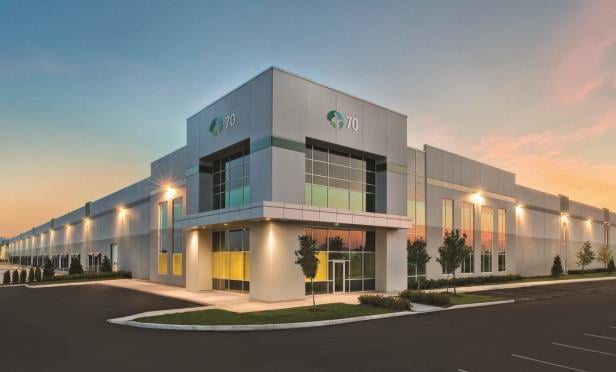 Industrial sites such as this one in Toronto are looking at consumer proximity to offset costs.
Industrial sites such as this one in Toronto are looking at consumer proximity to offset costs.
SAN FRANCISCO—Prologis Inc. recently reported results for the third quarter of 2019. Net earnings per diluted share was $0.71 for the quarter compared with $0.60 for the third quarter of 2018. Core funds from operations/Core FFO per diluted share was $0.97 for the quarter, including $0.18 of net promote income, compared with $0.72 for the same period in 2018, which did not include any promote income.
"Our third-quarter results were excellent, reflecting record rent increases and significant earnings from our strategic capital business," said Hamid R. Moghadam, chairman and CEO, Prologis. "Markets remain healthy, driven by customers who are prioritizing proximity to consumers to offset supply chain costs such as labor and transportation. Additionally, investor interest for our strategic capital ventures is exceptional, as evidenced by a record capital raise of more than $1.6 billion for our open-ended vehicles."
During the quarter, Prologis and its co-investment ventures issued $2.8 billion of debt, principally in Euros, at a weighted average fixed interest rate of less than 1% and a weighted average term of more than 14 years. The company ended the third quarter with leverage of 18.4% on a market capitalization basis, debt-to-adjusted earnings before interest, taxes, depreciation and amortization/EBITDA of 3.9x and $4.9 billion of liquidity.
"Our ability to source capital on a global basis, while naturally hedging our assets against foreign currency movements, is of tremendous strategic advantage," said Thomas S. Olinger, chief financial officer, Prologis. "This quarter's financing activity lowered our total weighted average interest rate by 10 basis points to 2.4% and lengthened our weighted average maturity by approximately 2 years to 7.7 years."
© Touchpoint Markets, All Rights Reserved. Request academic re-use from www.copyright.com. All other uses, submit a request to [email protected]. For more inforrmation visit Asset & Logo Licensing.







